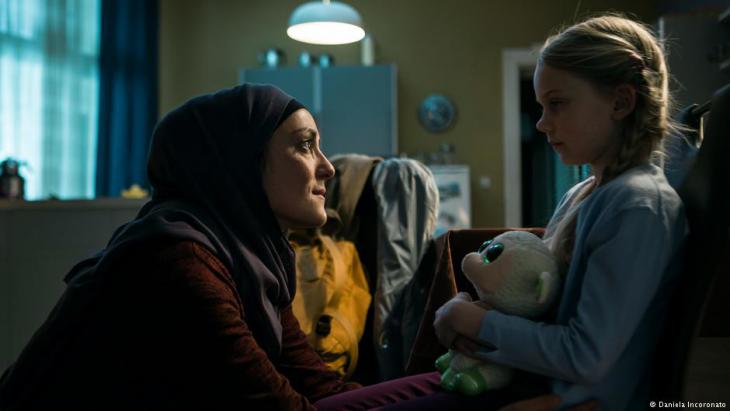Sending a message
 The bad news came just a few weeks before the start of the festival on Friday. Without naming a reason, the Turkish Culture Ministry dropped its financial backing, which in the past amounted to as much as €60,000. Last year, Turkey cancelled the subsidies retroactively, so the news of a complete withdrawal this year didn’t come as a total surprise, admitted festival director Adil Kaya.
The bad news came just a few weeks before the start of the festival on Friday. Without naming a reason, the Turkish Culture Ministry dropped its financial backing, which in the past amounted to as much as €60,000. Last year, Turkey cancelled the subsidies retroactively, so the news of a complete withdrawal this year didn’t come as a total surprise, admitted festival director Adil Kaya.
Financial backing from the German Foreign Ministry, the Goethe-Institut, the Robert Bosch Foundation and the State of Bavaria has helped ensure that the 23rd edition of the Film Festival Turkey Germany could nevertheless take place as planned from 9 March to 18 March 2018.
No interest in intercultural dialogue

The Turkish Culture Ministry’s stance is probably “too national”, says Kaya, adding that Turkey is currently not very interested in intercultural dialogue, focussing instead on national cultural content.
In times of crisis in particular, events that keep cultural dialogue up and running are important, the festival director argues.
“At least the German side continues to see it that way.”The cancellation comes at a time of tension between Germany and Turkey, where policies have become increasingly nationalist under President Erdogan.
It is difficult for filmmakers to express themselves in Turkey these days, Kaya says, adding that many are frightened. That’s why they come to Germany. “They need these festivals in order to breathe.”
The festival director says Turkish film directors have become more cautious, often letting deceased cultural leaders speak for them. This year, the festival presents documentaries on Turkish writer Yasar Kemal (1923-2015) and film director Yilmaz Guney (1937-1984) – neither of them known for mincing their words.
Over the next 10 days, the festival will show 43 films – short films, documentaries, feature films. Most reflect the world in which we live, says Frank Becher, a curator and member of the festival’s management. The films are political, he adds, “even if they don’t seem to be about politics at a first glance.”
Becher is aware that the 2018 festival mirrors the current political and social situation in Turkey, including restrictions on the freedom of opinion and democracy – “a freedom that today, many of the artists presented at the festival over the years can only dream of, be it for economic or political reasons.”
Christian Petzold’s “Transit”, which just premiered at the Berlin Film Festival, is one of the 10 feature films presented in Nuremberg this year. Some films focus on refugees, escape and displacement, others on German-Turkish relations, prejudices, and the life of a young girl in eastern Turkey.
Honorary prize for Volker Schlondorff and Halil Ergun
The festival kicked off with an honorary prize for two champions of German and Turkish film: Oscar-winning director Volker Schlondorff is honoured for a lifetime of cinematic works marked by “great intercultural understanding.”

Halil Ergun is portrayed as “one of Turkey’s most creative actors” who reinvented himself time and again over his 40-year career and was always much admired by the audience, even when he played in critical productions.
“He was the audience’s conscience, always a critical voice with a courageous political attitude based on adhering to democratic principles,” according to Kaya, who concludes that the homage to Halil Ergun is clearly a message in the present context.
Jochen Kurten
© Deutsche Welle 2018

